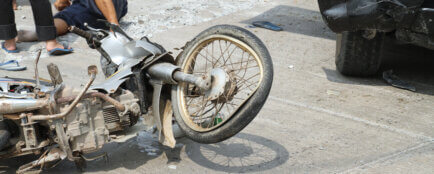Culpability
In order for an act to be considered criminal, the culpability of the perpetrator is required. As a rule, the Criminal Code presupposes intentional culpability, unless it expressly provides for a specific criminal offence (or its so-called constituent elements) that negligent culpability is also sufficient.
For misdemeanours, the above principle applies in reverse. As a rule, negligence is sufficient, unless the law expressly provides that intentional fault is required.
These two forms differ from each other in the presence of two components, namely knowledge (I know with certainty or with some probability of a certain fact) and volition (I want to do something or I am aware that it will happen). Intention includes both components, negligence only includes the component of knowledge. It is irrelevant whether the knowledge and volitional components correspond exactly to objective reality. For example, in the case of a purse snatcher, we do not assume that he knows that there are six thousand crowns in the purse; what is important is his intention to steal the purse.
Culpability is defined as the offender’s internal psychological relationship to the crime.
Are you solving a similar problem?
Are you unsure of your legal situation?
If you are looking for an answer to a specific legal question, please describe it to us and we will prepare an answer within 48 hours. We will prepare a written opinion with a proposed solution.
I want legal advice
- When you order, you know what you will get and how much it will cost.
- We handle everything online or in person at one of our 6 offices.
- We handle 8 out of 10 requests within 2 working days.
- We have specialists for every field of law.
Tip for article
We have discussed what constitutes a crime and how the various crimes are divided in a separate article.
Deliberate acts
The intent of the perpetrator can be further distinguished into direct and indirect intent.
Direct intent: the person knows that he or she may commit a criminal offence and intends to commit it.
Example. He suspects that there is a large sum of money in the till before the end of the week, he wants to get hold of it and he knows that he will commit the crime of theft.
Indirect intent: the person knows that he or she may commit a crime by his or her actions, it is not directly his or her intention, but he or she is aware of it. Popularly speaking, it does not make much difference whether or not he commits the crime. Thus, he acts with some intention which is not directly the crime in question, but it is clear that the crime in question will probably occur. Indirect intent is considered a less intense form of culpability than direct intent.
Example. Thus, in addition to negligent battery, he commits the offence of failing to render assistance, for which we would show indirect intent.
Indirect intent differs from direct intent in that the perpetrator’s relationship to the consequence of his conduct is less clear. Both direct and indirect intent must be proved by the perpetrator. Indirect intent cannot be inferred from mere indifference to a possible consequence.
Intent is assessed from many different components of the perpetrator’s conduct – for example, in the case of grievous bodily harm or murder, we examine the verbal component of the attack (threats), the instrument used, the manner of its use, the intensity of the blow, etc. It is the complex of these components that should lead us to a conclusion about the perpetrator’s intent, not just one of them.
Example: in his agitation, Mr. Old shouted at his girlfriend, “You crashed my car, I’m going to kill you”. Being volatile and prone to violence, he accompanied his words with a giant slap. Miss Young did not suffer any significant bodily harm, but she does not intend to tolerate her boyfriend’s behaviour and is considering breaking up with him. Although a death threat was made and violence was used, we would characterise (in the light of the other circumstances) Mr Old’s actions as rudeness but not as a deliberate attempt to murder.
Negligence
Negligence is also subdivided, namely into conscious and unconscious negligence. Gross negligence is then a separate category.
Conscious negligence
This is a situation where a person knows that he or she is likely to commit a criminal offence by his or her conduct, but without reasonable grounds relies on the fact that he or she will not do so.
Example: Mrs. Little knew that there was damaged roofing on the roof of her house that might fall. Although she was warned that she should have the roofing repaired, she did not pay attention because she thought nothing would happen. However, during a stormy day, part of the roofing came loose and fell onto the sidewalk, injuring a passerby.
Negligence without knowledge
This is a situation where a person does not know that he or she may be committing a crime by his or her actions, but given the circumstances, he or she could have known and should have known. In such a case, the assessment of what the person should have known is based on the person’s particular circumstances and circumstances.
Example: Mrs. Cerna went to visit a museum. She was only interested in the exhibition until she noticed the fire alarm button. She thought back to her student days and found it amusing to set off the alarm and run away. She assumed that triggering it would cause the staff to arrive and sound the alarm. She didn’t realize that she would also trigger the fire extinguisher system at the same time, releasing several hundred pounds of fire extinguishing gas. The damage was estimated at three million crowns. Ms Cerna was charged with the offence of damaging and endangering the operation of a public utility by negligence.
Gross negligence
It is understood to be a higher degree of negligence, whether conscious or unconscious, where the offender’s attitude to the requirement of due care shows his or her apparent disregard for the interests protected by criminal law. Some offences can only be committed through gross negligence.
Example: Mrs Dull went on holiday for a week and left one bowl of water and one bowl of kibble for her three dogs in a closed shed. One dog did not survive the seven-day stay in the enclosed space without water, the other two are severely dehydrated and in critical condition. Ms Hrubá was negligent in the care of the animal, an act commonly associated with gross negligence.
Negligent homicide/negligent battery in a car accident
Let’s take the whole issue of negligence even further by looking at the example of battery or manslaughter for a car accident. It is car accidents that are typically the case where negligence crimes are committed:
- Deliberate negligence: a driver drives in heavy traffic in a city at 70 km/h, even though he is aware that he is breaking traffic regulations and increasing the risk of an accident. However, he relies on the fact that he can control the vehicle and nothing will happen. However, while braking hard for a pedestrian in a crosswalk, he hits a child who suffers serious injuries. The driver was therefore aware of the risk but unreasonably relied on nothing happening.
- Negligence without knowledge: A driver is returning home in the evening and forgets to turn on his lights. He does not realise that his vision is poor and, as a result, he misses a cyclist riding on the verge. He hits the cyclist and causes serious injuries. The driver did not know he was acting dangerously but should have been aware that he had to turn his lights on in the circumstances.
- Gross negligence: a driver gets behind the wheel after drinking alcohol and starts to drive home. He loses control of the vehicle, drives into oncoming traffic and crashes head-on into another car, whose driver is killed instantly. His actions demonstrated a complete disregard for the safety of other road users.
Culpability and insanity
In case of insanity of the perpetrator, we cannot speak of culpability. In fact, insanity causes the disappearance of the right of recognition (where even unconscious negligence is not possible) or the controlling component (where free will is absent).
It is not necessarily insanity in the general sense, i.e. in the sense of some mental disorder or limitation of capacity. It may be a momentary state of seconds or minutes, caused, for example, by an epileptic seizure. Insanity may also be long-term, caused, for example, by schizophrenia, another illness or a mental disorder.
Example: Mrs. Vetchou suffered an epileptic seizure in which she knocked over a cast-iron coat rack in a store, causing property damage to the merchant (destruction of the wooden floor and glass display case) and a broken arm and shrapnel injuries to another customer after the coat rack and the display case fell together. In this case, however, there is no fault even in the form of negligence.
The exception is where someone deliberately rendered themselves insane by consuming alcohol or other similar substance. If it is proved that the offender has been rendered insane with the intention of committing a criminal offence, then he is fully responsible for all the acts he has committed.
If the aforementioned intent is not proved, the offender shall be tried for the offence of drunkenness, which carries a penalty of imprisonment for three to ten years. If, however, the law provides for a lesser penalty for the act committed by the person concerned, that lesser penalty shall apply.
Tip for article
An attacker threatening with a gun or an aggressive dog attacking a child in a park. These may be circumstances precluding illegality. What are the rules for them and what are you at risk of? Find out in our article.
Summary
In order for an act to be criminal, the culpability of the perpetrator must be proven. The Criminal Code usually requires intent, unless it provides that negligence is sufficient. Intentionality includes knowledge and intent – the perpetrator knows that he or she will commit the act and intends to do so (direct intent) or is aware of it (indirect intent). Negligent culpability involves knowledge only – the perpetrator either knows of the risk but unreasonably relies on it not occurring (conscious negligence) or is unaware that he or she is committing the act but should know (unconscious negligence). Gross negligence then means extreme recklessness.
A reckless perpetrator is not liable if he has lost the ability to recognise or control the consequences of his actions. If, however, he or she has deliberately rendered himself or herself insane, for example by consuming alcohol, he or she is liable.




